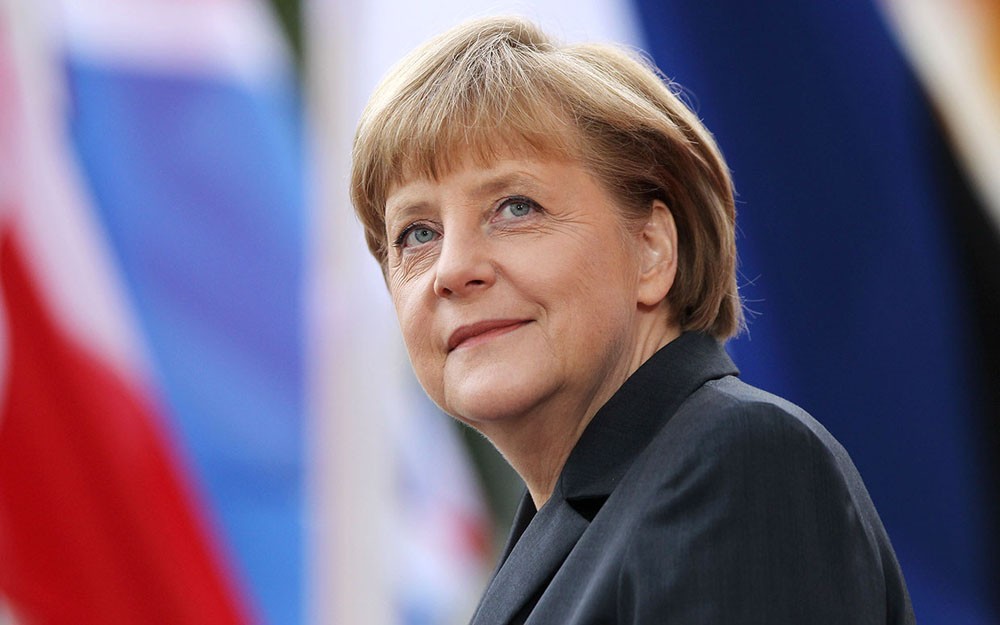
When millions of Muslim refugees are making a beeline to Europe, it is a woman of valour who stands firm in her resolve to help the hapless

If there is any leader in Europe today who deserves praise from the Muslim world, she has got to be Angela Merkel of Germany. On March 13, three states of Germany had elections and two of them saw Merkel’s party lose ground; but those who expected Merkel to repent and renounce her policy of accepting refugees -- mostly from Syria, Iraq, and Afghanistan -- were disappointed. Merkel reaffirmed her resolve to work for a joint European strategy for tackling the refugee crisis.
The 62-year-old former scientist has been Germany’s chancellor for over a decade now. She assumed the leadership of Christian Democratic Union (CDU) in 2000 and since then has led this self-proclaimed liberal-conservative party that appeared to be an oxymoron in itself. It sounds implausible that a party can be both liberal and conservative at the same time. This centre-right party has been in coalition with Christian Social Union that is essentially concentrated in Bavaria.
It is interesting to remind ourselves that the Germany that had endured Hitler’s racist dictatorship for over 12 years -- from 1933 to 1945 -- is now led by a leader who is at the forefront of tolerance towards refugees. Hitler’s Nazism had ended when the Soviet Red Army, after over four years of brutal fighting and sacrificing millions of soldiers, finally entered Berlin in April 1945.
After the Second World War, most of eastern Germany was occupied by the USSR and western Germany came under the US, British and French control. With eastern Germany becoming German Democratic Republic, the western part assumed the name of Federal Republic of Germany where Catholics and Protestants jointly formed a right wing Christian Democratic Union that elected Conrad Adenauer as its chancellor. The same CDU is now led by Angela Merkel.
Angela Merkel is now considered one of the most academically qualified political leaders in the world having a PhD in physical chemistry. She is one of those leaders who have successfully dispelled the impression that the highly qualified don’t or shouldn’t enter politics. She belongs to a club that includes Xi Jinping of China, Hassan Rouhani of Iran, with Abdul Kalam and Manmohan Singh of India -- all having doctoral degrees in various subjects.
Angela Merkel was born in FRG but moved to GDR with her priest father where she had a strictly Christian upbringing. After the reunification Germany in 1990, she became active in the CDU and within 10 years was elected its leader, winning the chancellorship of Germany in 2005, 2009, and then in 2013. Earlier the Christian Democrats had rule over FRG for over two decades from 1949 to 1969 including the 14-year chancellorship for Adenauer. Then in 1969, Social Democratic Party led by Willy Brandt won the elections and he remained the chancellor for five years handing over power to Helmut Schmidt of the same party. Schmidt remained chancellor for eight years from 1974 to 1982 when the CDU once again gained power led by Helmut Kohl who retains the distinction of being chancellor of FRG for the longest period i.e. for 16 years.
In 1998, the Social democrats started another seven-year stint in power with Gerhard Schroder sitting as chancellor for seven years till 2005. And from then to date, Merkel rules the roost; so if you look at the politics of modern Germany during the past seven decades, you see that the Social Democrats have ruled hardly for 20 odd years; while the CDU has retained power for over 50 years.
Now the latest situation is that the traditional right-wing Angela Merkel is accomplishing what would have been very difficult even for a progressive and left-wing party. When millions of Muslim refugees from Syria, Iraq, Afghanistan, and even from countries such as Pakistan are making a beeline to Europe; and while most of the European countries are reluctant to welcome them, it is a woman of valour who stands firm in her resolve to help the hapless.
Merkel is facing stiff resistance from her detractors especially from extreme rightist parties whose epitome is AFD (Alternative for Democracy). AFD heaped scorn at Merkel during the recent election campaign and termed her decisions detrimental to Germany. Highlighting the fact that Germany registered over a million refugees in 2015, the ADF has scored major gains in the western parts of Germany while the CDU has been able to hold on in the eastern part i.e. Saxony-Anhalt.
The CDU lost two states where it had hoped to win against centre-left incumbents in Baden-Wuerttemberg where the CDU finished second behind the left-leaning Greens. Similarly, the CDU also faced losses in Rhineland-Palatinate where the AFD gained ground. For the AFD the biggest prize was Saxony-Anhalt where it won around 24 per cent votes with the voter turnout being over 60 per cent; even in the two western states the turnout was around 70 per cent, which is very high according to the European standards.
Saxony-Anhalt had a coalition government of the CDU and Social Democrats, while the AFD had representation in five states and now, with the addition of three more states, the AFD will make its presence felt in at least eight of the total 16 states of Germany. The entire campaign of the AFD revolved around its xenophobia and racist rhetoric, and that was one of the causes behind the CDU’s dramatic decline in Baden-Wuertemberg where it lost over 25 per cent of its traditional vote bank.
The best thing that should be appreciated is Merkel’s steadfast response to the election results; she categorically refused to budge an inch from her declared position to remain sympathetic in the face of this great humanitarian crisis. Bravo Angela, you are an angel of peace.